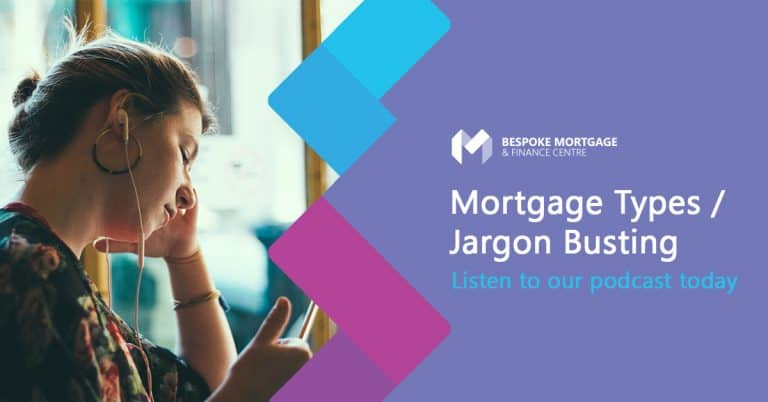Everything you need to know about Self Employed Mortgages
If you are self-employed, you may be worried about getting a mortgage. You may have been told by friends or family members that you have no chance of being approved because of your employment status. Luckily, this is not true! There are self-employed mortgages, yet you do need to be aware of how these mortgages work.
How will the application process differ from a standard mortgage?
When it comes to getting a mortgage, you’re going to be applying for the same products as someone in traditional employment. Rather than the mortgages themselves being different, it is the application process that differs. You need to show that you have a consistent income coming in so that you will be able to afford the mortgage payments. The more records you can provide, the better.
Showing that your profit is consistent or has been improving over the years can help to boost your chances of being approved. Lenders will look at your typical profits over a time period to evaluate your risk profile.
How do I prove my income?
To prove your income, you are typically going to need a minimum of two years of accounts that have been signed off by a chartered or certified accountant.
If your income is not consistent, i.e. it varies dramatically per year, you may need to provide the mortgage lender with more evidence of future income. For example, proving that you have a considerable amount of savings, or showing new contracts or clients.
Of course, your employment status is going to dictate how you go about proving your income. For example, if you are a sole trader, you will use the tax calculated by HMRC to show your income. Most lenders will use this information to determine their mortgage calculations.
If you run a limited company, make sure your personal and business accounts are separate. You will typically pay yourself dividend payments and a salary as a director, and both of these will be taken into consideration.
What about partnerships? Well, if you are in business with another person, your individual share of the profits will be considered.
Do self certification mortgages still exist?
In a word – no, self certification mortgages do not exist in the UK anymore.
A self-certified mortgage enables you to specify how much you earn when applying without having to supply any documents to prove this. A loophole means you are still able to get these mortgages from European lenders.
However, this is not recommended. In fact, the Financial Conduct Authority (FCA) has issued a warning about the risks of obtaining a mortgage from outside of the United Kingdom.
How do you go about arranging a self employed mortgage?
Getting a self-employed mortgage should not limit the deals available to you. You should approach the process in the same way, i.e. looking at all of your options and accumulating the evidence needed to show that you can repay the loan.
You are going to be more likely to get a mortgage if you have enough income to cover your mortgage repayments, a good credit rating, and a healthy deposit.
To improve your chances of being accepted, it is advisable to use an accountant to help in organising your taxes and accounts.
Aside from this, keep your business electronic records, accounts, and paperwork up to date.
What documentation will I need?
You are going to need to prove your income to be successful in your self-employed mortgage application. To do this, the documents you need are as follows:
- Evidence of your retained profits or dividend payments if you are a business director
- Evidence of upcoming contracts if you are a contractor
- A tax year overview from HMRC for the past two or three years
- Two or more years of certified accounts
Lenders also prefer if your accounts have been prepared by chartered, qualified accounts. This is because it helps in terms of boosting your reliability.
Aside from evidence of your income, you are going to require the following:
- Six months worth of bank statements
- Utility bills dated within three months
- Council tax bill
- Driving licence
- Passport
How do they work?
When applying for a self-employed mortgage, the amount you are able to borrow and the manner in which it is calculated depends on the lender. This is why it is critical to search around for the most appropriate deal.
Some lenders will determine the amount you can borrow by looking at the income you have accumulated over the past few years, whereas others will only consider your previous year of trading.
They may calculate your mortgage deal differently depending on your legal status. For instance, salary and dividends are considered if you have a limited company. Net profits are considered as income for partnerships and sole traders.
When lenders determine how much you can borrow, they usually find it difficult to work out your typical income. For instance, you could have had some quiet periods, and this can impact the amount of money a lender would provide you with.
Are deposits/amount borrowed and fees different from a standard mortgage?
No; you’re not going to need to pay more fees because of your self-employed status. Deposit terms do not differ either. However, saving for a bigger deposit can certainly help to boost your chances of being approved.
As is the case with any type of property purchase, the bigger your deposit, the easier it is going to be for you to get a mortgage at a good rate. The majority of lenders are going to ask for a deposit between 10 and 20 per cent. If you do not have a long account history to show the mortgage lender, you could require a bigger deposit to show the lender that you are a safe bet.
YOUR PROPERTY MAY BE REPOSSESSED IF YOU DO NOT KEEP UP REPAYMENTS ON YOUR MORTGAGE
Remortgaging
If your current mortgage deal or term is coming to an end, make sure you explore your options, because your existing lender may no longer

Mortgage Types/Jargon Busting
Mortgage Types | Bespoke Mortgage & Finance Centre What types of mortgage are there and how do you choose? There are many different kinds of

High Net Worth Mortgages
What is High Net Worth? The Financial Conduct Authority regards a high net worth application as a client who earns a minimum of three hundred
Get In Touch
Protecting your family is one of the most important things you can do. It is for this very reason that impartial advice is critical from qualified advisers…
